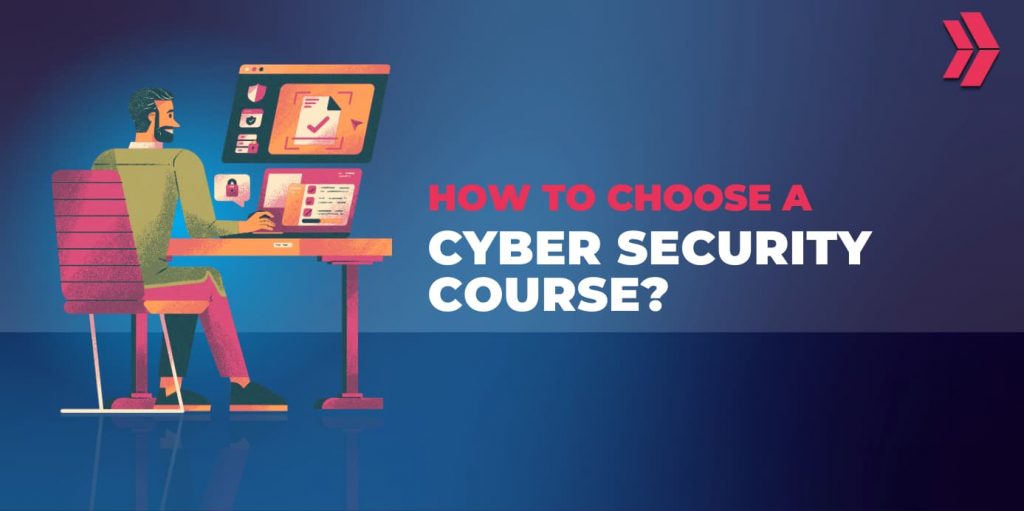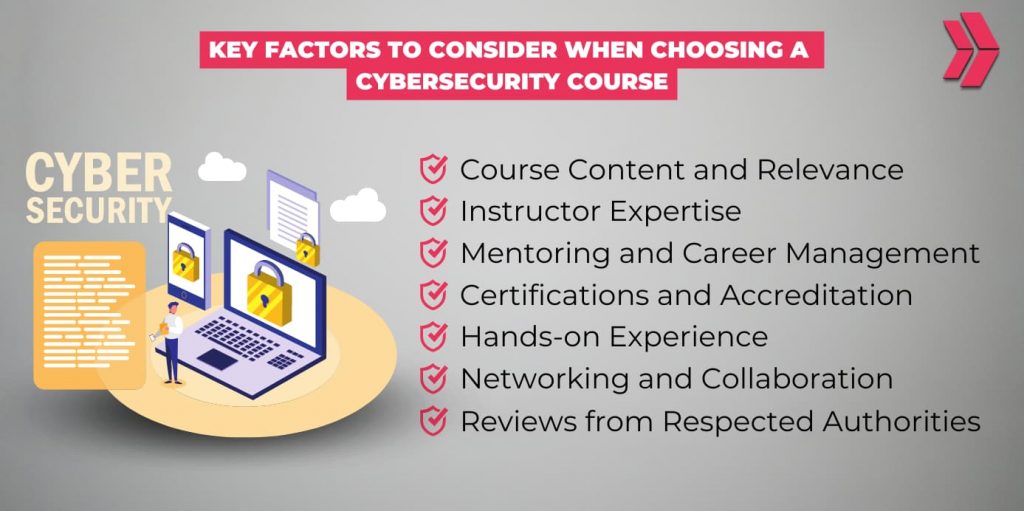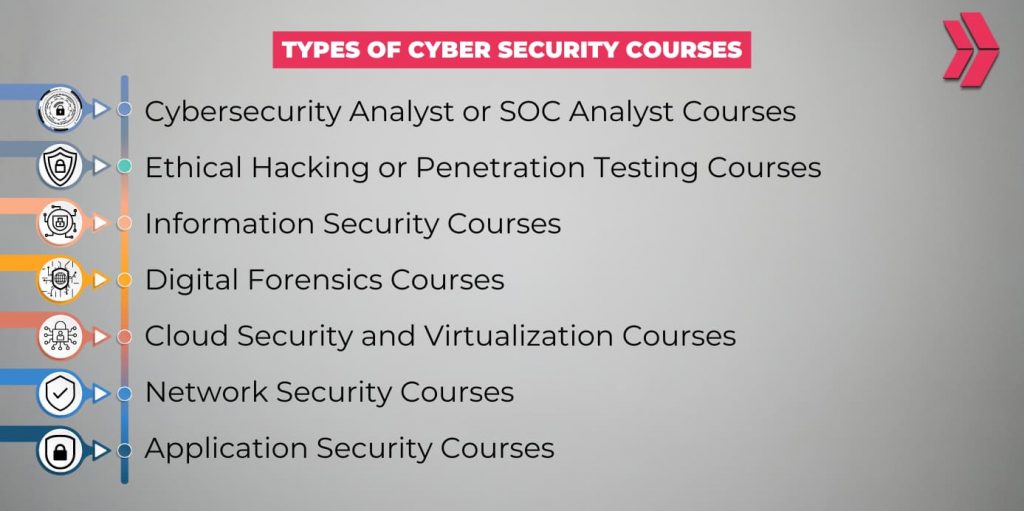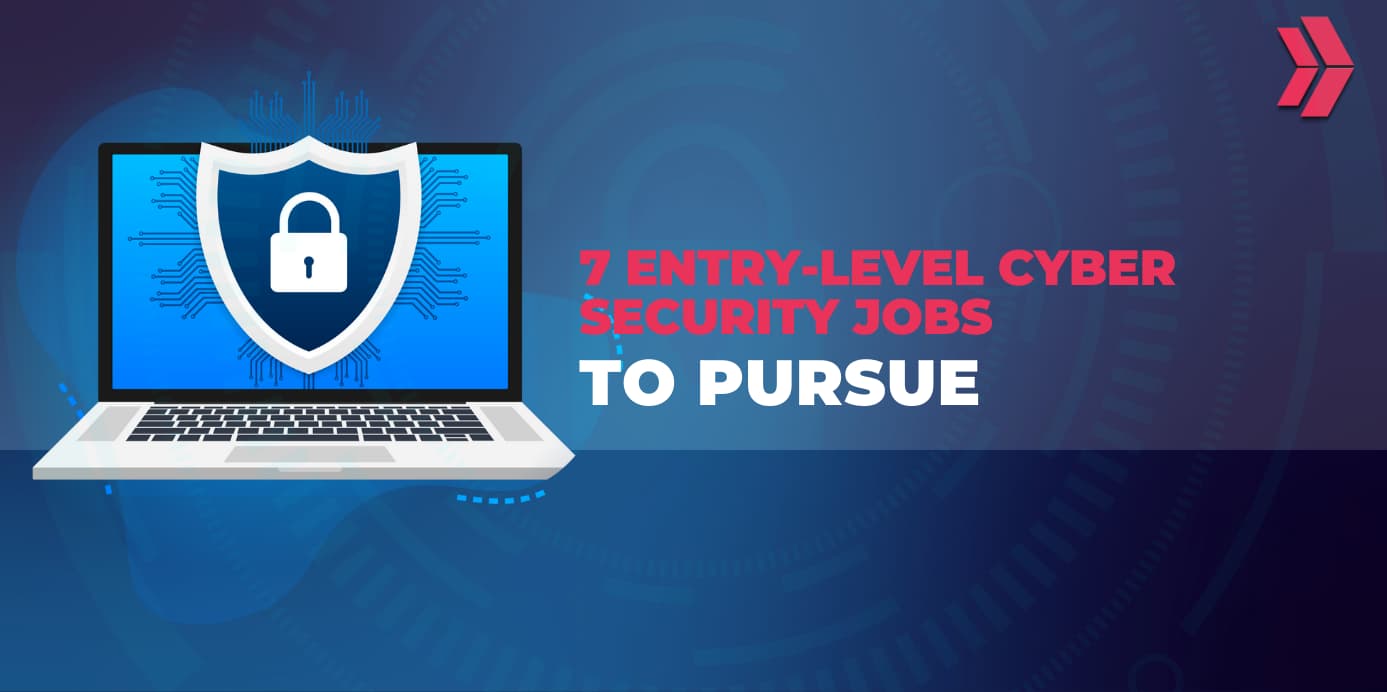Learning cybersecurity is essential to protect sensitive assets against an ever-evolving threat landscape and enhance security posture. A cyber security course caters to individuals with varying knowledge and skills, from beginners to professionals, and offers excellent career opportunities for different job roles. There are many types of cybersecurity courses, but the question is how to choose the right cybersecurity course.
There are many key factors to consider when choosing a cybersecurity program. A successful course combines theoretical knowledge, industry-recognized cybersecurity certifications, and hands-on experience. Courses also foster professional networking. Comprehensive cyber security training should provide a job-focused curriculum that helps participants effectively learn, understand, and prepare for cyber threats.
Moreover, such courses are instrumental in securing cybersecurity jobs quickly or advancing their careers. For instance, the job placement rate is high, and 72% of graduates land a job within six months after completing the course, according to Switchup. Additionally, they offer flexible schedules, and 75.1% of students keep their full-time jobs while attending a bootcamp, according to the 2024 Bootcamp Statistics And Fast Facts.
A cyber security bootcamp presents many advantages over traditional educational methods. Cybersecurity courses have become popular, but choosing the right one is challenging. Thus, this blog will provide extensive guidance on the critical assessments for selecting the most suitable cybersecurity course to build a successful career.

What are the Key Factors to Consider When Choosing a Cyber Security Course?
Choosing a course is challenging, and people usually rely on reviews from respected authorities to decide. Here are the 7 key factors to consider when choosing a cybersecurity course:
- Course Content and Relevance
- Instructor Expertise
- Mentoring and Career Management
- Certifications and Accreditation
- Hands-on Experience
- Networking and Collaboration
- Reviews from Respected Authorities

1. Course Content and Relevance
A successful cybersecurity course provides job-oriented content that aligns with the latest developments. A focused curriculum and relevant content prepare participants for real-world scenarios and industry-specific needs. Online bootcamps can quickly adapt to the changing nature of the threat landscape.
2. Instructor Expertise
Instructors who employ innovative methods and possess educational expertise help students gain thorough knowledge and skills. Instructors with extensive industry experience enhance students’ performance on practical assessments by 20%, according to the 2024 study from the National Cybersecurity Training Academy.
3. Mentoring and Career Management
Mentoring and personalized guidance are vital to improve performance and skills. Experienced mentors save students from drowning in trivial details and enable them to focus on more critical issues. Moreover, cybersecurity courses should offer career management support throughout education to help students construct a professional foundation and prepare them to land a job quickly.
4. Certifications and Accreditation
Certifications verify the professional knowledge and expertise in the field. Cybersecurity courses should offer globally recognized certifications to make students more competitive. For example, 91% of recruiters tend to hire candidates with certifications, according to the 2024 Cybersecurity Skills Gap report published by Fortinet. Moreover, accreditation is a significant indicator of industry compliance and quality assurance efforts.
5. Hands-on Experience
Cybersecurity courses should combine theoretical knowledge and practical experience to solidify education. Professionals with practical experience using real-world simulations are more competitive and preferred in the job market. For instance, 73% of recruiters prioritize hands-on experience over theoretical knowledge, according to the State of Cybersecurity 2022 published by ISACA.
6. Networking and Collaboration
Professional networking is very effective in job hunting efforts, and more than 80% of individuals secure their jobs through networking, as stated by Forbes. Moreover, embracing collaborative teamwork and incorporating guest speakers from the industry facilitates experience-sharing and knowledge acquisition.
7. Reviews from Respected Authorities
People usually rely on reviews from independent and recognized authorities to weigh the advantages and disadvantages of courses. Testimonials and user evaluations provide valuable insights about courses. These review platforms and publications are critical for choosing a cybersecurity course.
What Types of Cyber Security Courses Are Available?
Here are the 7 main types of cyber security courses available in the market:
- Cybersecurity Analyst or SOC Analyst Courses
- Ethical Hacking or Penetration Testing Courses
- Information Security Courses
- Digital Forensics Courses
- Cloud Security and Virtualization Courses
- Network Security Courses
- Application Security Courses

Cybersecurity is a vast field, and a cybersecurity course caters to professionals with varying levels of expertise, job roles, and industries.
What Are the Differences Between Certificates, Diplomas, and Degrees?
Certificates, diplomas, and degrees differ primarily in their depth of study, duration, and the level of expertise they provide.
A certificate is a document that proves professional expertise in a related domain. Cybersecurity online courses offer cost-effective certifications that can be completed in a shorter time than diplomas and degrees.
Diplomas are official validation of proficiency in a single subject, generally a job-specific skill. It takes about two years, which is longer than cybersecurity certifications but shorter than degrees.
Degrees offer versatile knowledge and skill sets that put individuals forward in career prospects. They require a lot of dedication, effort, and time. There are 4 main types of cyber security programs: associate, bachelor, master, and doctorate degrees.
Who Should Consider a Cyber Security Course?
Cybersecurity courses help individuals gain hard and soft skills for professional growth. The cybersecurity field is appropriate for people who want to make a career change, even without any IT background. Moreover, current cybersecurity professionals can take proper cybersecurity training to upgrade their skills and then search for new opportunities for career advancement.
Cybersecurity training is suitable for various people from different socioeconomic backgrounds. For instance, enthusiasts, IT professionals, or career changers can take cybersecurity courses to become familiar with the fundamentals of security concepts or improve their professional skills.
Is Cyber Security a Good Career?
Yes, cybersecurity has gained more importance recently and promises a brilliant cybersecurity career. There is a skilled workforce gap, and the employment rate for cybersecurity analyst jobs is projected to rise by 33% from 2023 to 2033, while the yearly total employment growth is estimated to increase by 0.4 percent, according to the Bureau of Labor Statistics.
Cybersecurity offers competitive salaries, high satisfaction rates, remote working options, and work-life balance. It requires no prior IT knowledge. There are many rewarding career options in diverse job roles and industries. Therefore, individuals seek guidance to the following question: How to start rewarding cybersecurity career path from scratch?
What are the Career Opportunities After Completing the Course?
Cybersecurity courses equip individuals with highly sought-after skills in the job market and offer many career opportunities. Here are the top 7 cybersecurity jobs to apply after completing a cybersecurity course:
- Cybersecurity Analyst
- Security Operations Center (SOC) Analyst
- Cloud Security Analyst
- Ethical Hacker / Penetration Tester
- Digital Forensics Analyst
- Cybersecurity Engineer / Architect
- Cloud Security Engineer / Architect
These positions represent some of the most promising cybersecurity jobs available today.
Conclusion
For career changers or individuals already working in the field, a question bothers people: Are cybersecurity bootcamps worth It? The answer is definitely yes. There are different types of cybersecurity courses available that are designed for various job roles. Anyone eager to learn cybersecurity from scratch or current professionals keen to excel in the field can take a cybersecurity course.
Choosing a cybersecurity course is really challenging. There are some key factors to consider, such as course content, instructor expertise, mentoring and career management support, certifications and accreditation, hands-on experience, networking opportunities, and credited reviews. In this context, Clarusway stands out as a proven cybersecurity training bootcamp.
Clarusway offers a job-oriented and focused curriculum that empowers students to leverage the latest tools and technologies to navigate the threat landscape. Moreover, certification is an essential pillar of courses, and Clarusway is the authorized partner of the Comptia company. Furthermore, Clarusway has the best cybersecurity bootcamp awards from reputable platforms, including Course Report, Career Karma, and SwitchUp, which affirms the quality of the course. Thus, Clarusway is an excellent choice for you to build a cybersecurity career that is shaped by professionalism.







